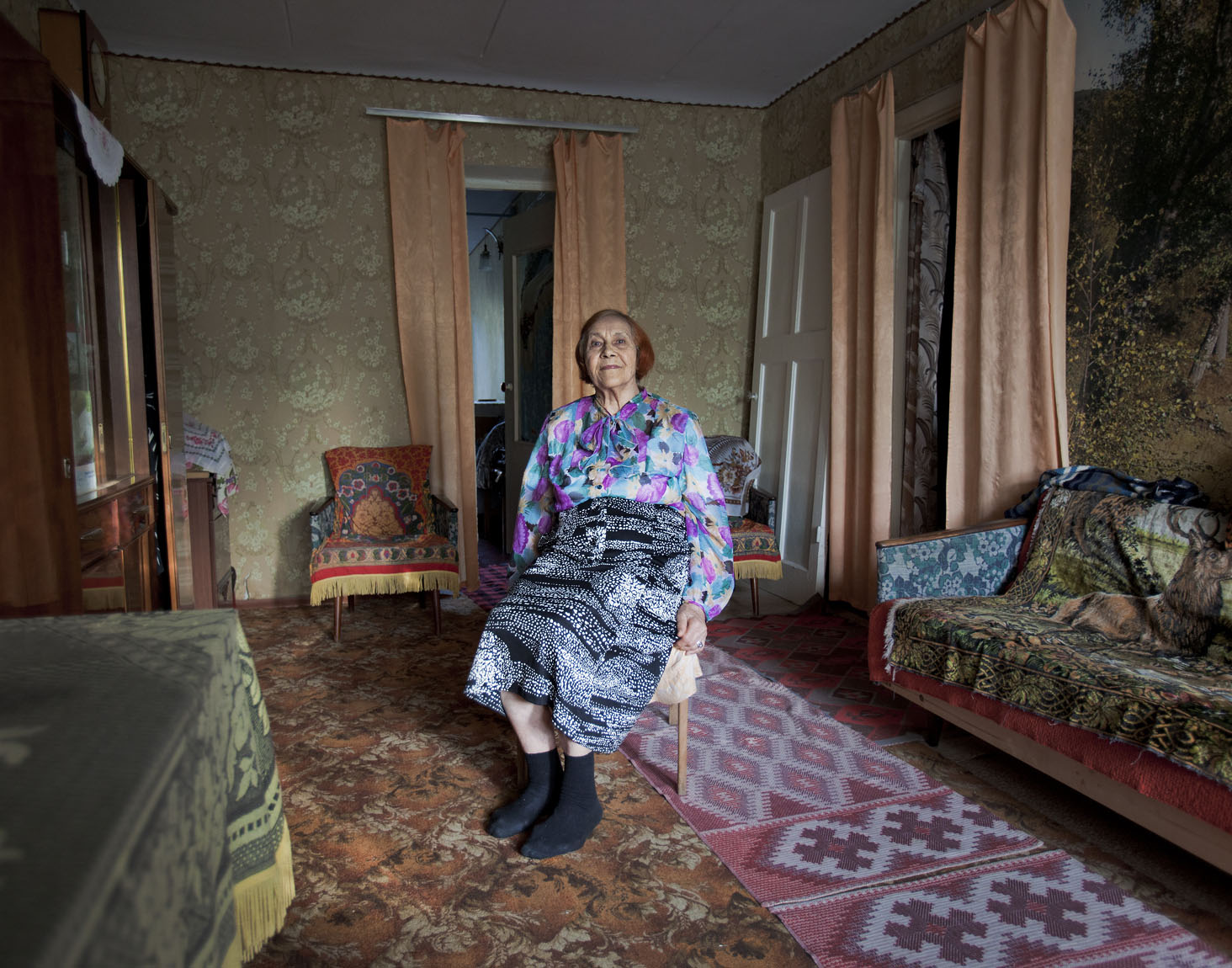I am Lidiya Dolzhnikova. I was born in the Kherson region, in Kotovskiy district, somewhere on a farm. My childhood was not that memorable. We worked a lot and I grew up with my mother and my brother. Of course, I remember the famine of 1933 and 1934. My little brother was bloated from hunger. So my mother took us to the seaside with her while she caught fish.
When the war started, we were in Crimea. My brother and I were very active in the resistance from the beginning. I was only fourteen and my brother had just turned twelve. We dug trenches and dugouts around Ishun, at the big defensive line guarding the entrance to Crimea. The Germans were coming at us on land and we were doing everything possible to keep them from getting into Crimea. But in the autumn of 1941 there was a horrific battle. The Germans broke through the defense line. So many of our soldiers were killed and had drowned in the salt lakes that surrounded the trenches. It seemed like water, earth and skies were on fire. Our soldiers were falling left and right, and Germans were just coming through, one tank after another, one motorcycle after another. I couldn't see the end of it. How we didn't die there I don't know.
All the kids that were helping the soldiers there and managed to survive were taken to Ishun. Meanwhile, the Germans were moving along the western coast of Crimea. They made it to Balaklava, where they won another battle, and then went all the way to Sevastopol.
Before the Germans came, we had anti-aircraft guns sitting in our backyard and they were firing all the time. I was very scared. One time I was outside and they started shooting those guns, and something hit me. Apparently the side of a shell had just brushed my side. The doctor told me, "You must be a very lucky girl." Our soldiers took good care of me. Then our house was bombed and destroyed. We were moved to another place to live, where we stayed for the duration of the war. This was in a village called Pravda. We shared the house with another family. Then some Romanian soldiers who were coming through with the Germans took over the house. They made all of us live in the kitchen while they took the living room and the bedrooms. They would come to the kitchen and ask for food. They didn't speak Russian so they would try to explain that they want some food. My mother would say: "No food. I have my kids to feed, not you."
Then they left to go down to central Crimea, and all of them, as far as I know, were sent to Sevastopol. There were horrible, bloody battles there too. Life under German occupation was frightening. They started sending people back to Germany to work. We were lucky to avoid it - my brother had to hide in a chicken coop, or wherever he could, during raids. I was saved by an old woman by the name of Tanya Shedavchenko who hid me in her stack of straw. I was a healthy young girl, and I was afraid of being taken to Germany. My mother poured acid on her shoulder, so every time Germans would try to take her, she would show them her shoulder and they'd leave her alone. They wanted to avoid any deformed or sick people.
Nevertheless, life went on. Our mother was an educated woman. We were very artistic. She spoke Russian and Ukrainian, and taught us languages and literature. My brother and I would stage little plays in the Village House of Culture for the people in the village. We staged scenes from Gogol's Evenings on a Farm Near Dikanka. Our mother taught us to dance and to draw. We wanted to be children. There were good aspects and there were difficult aspects.
I remember a German officer came with a goose once. He handed it to my mother and pointed to the stove. He said, "Cook it." So she did. When it was ready, the officer cut edges of the wings with his knife and handed them back to her. He pointed to us and made a motion like he was eating with a spoon. He was saying, "Feed your kids too."
Most people from that time are gone now. Crimea was different before the war - it was very diverse. After the war, the Germans left, the Estonians left. Jews were killed or left. The Tartars were displaced. There were very few people left. Then Russians from the Tver region settled here.
After the war, I studied at a technical school. After graduation, I worked as an electrician for a year. I was transferred here to Kriviy Rih, where I worked in the coal mine for a while, as an electrician. Then I was transferred to the Factory of Mining Equipment, because that would allow me to get an apartment through work.
My husband had passed away by then. We had a son together, but we lost him when he was young. I live by myself now. My nephew lives nearby and helps out. There is a social worker that comes around and also helps. I need it sometimes. I have Parkinson's disease. She comes around twice a week, making my life much easier.
